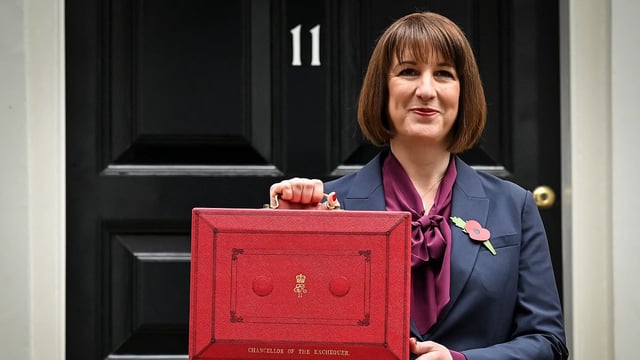Overview
- Initial OBR growth and productivity estimates are due to land with the chancellor this week ahead of the November Budget, with officials braced for a significant downgrade.
- A weaker productivity path would depress tax receipts and could leave a £20bn–£50bn gap to fill, with just £9.9bn of headroom and JPMorgan estimating a 0.1pp cut adds roughly £9bn to the task.
- NIESR’s Stephen Millard says that without policy changes the OBR would now forecast a current budget deficit in five years, implying further tax rises or spending cuts.
- The expected revision intensifies pressure on Labour’s pledge not to raise income tax, VAT or employees’ National Insurance as ministers prepare revenue options and potential savings.
- Reeves’ team argues the change reflects years of over‑optimistic OBR assumptions and legacy weakness, while Conservative critics blame her earlier tax increases for denting investment and confidence.
